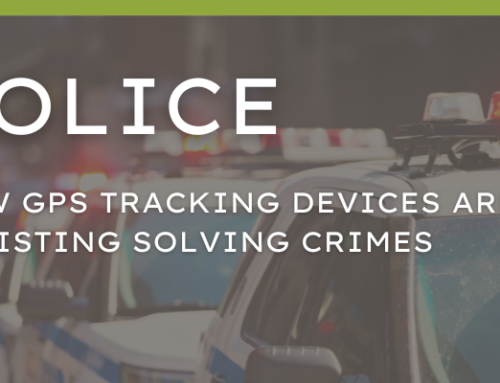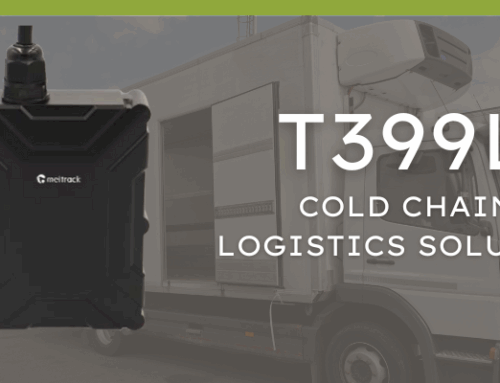Planning a trip is exciting, but navigating through unfamiliar territory can be stressful. Luckily, with the advancements in technology, a stress-free journey is just a GPS tracking system away. Whether you’re traveling to a new city or exploring the countryside, car rental GPS tracking can help you navigate your way with ease.
Imagine arriving at your destination and effortlessly finding your way to all the top attractions, restaurants, and hotels. No more getting lost or wasting time asking for directions. A GPS tracking system provides turn-by-turn directions, real-time traffic updates, and even highlights nearby points of interest.
Not only does GPS tracking make your trip stress-free, but it also ensures your safety. In case of an emergency, you can easily locate the nearest hospitals, police stations, or gas stations. Additionally, many GPS tracking systems offer theft recovery features, giving you peace of mind knowing that your rental car is protected.
Don’t let the fear of getting lost or dealing with the anxiety of navigating unknown roads ruin your trip. Invest in a car rental GPS tracking system and enjoy a stress-free journey filled with adventure and discovery.
Benefits of using GPS tracking for car rentals
Planning a trip is exciting, but navigating through unfamiliar territory can be stressful. Luckily, with the advancements in technology, a stress-free journey is just a GPS tracking system away. Whether you’re traveling to a new city or exploring the countryside, car rental GPS tracking can help you navigate your way with ease.
Imagine arriving at your destination and effortlessly finding your way to all the top attractions, restaurants, and hotels. No more getting lost or wasting time asking for directions. A GPS tracking system provides turn-by-turn directions, real-time traffic updates, and even highlights nearby points of interest.
Not only does GPS tracking make your trip stress-free, but it also ensures your safety. In case of an emergency, you can easily locate the nearest hospitals, police stations, or gas stations. Additionally, many GPS tracking systems offer theft recovery features, giving you peace of mind knowing that your rental car is protected.
Don’t let the fear of getting lost or dealing with the anxiety of navigating unknown roads ruin your trip. Invest in a car rental GPS tracking system and enjoy a stress-free journey filled with adventure and discovery.
How does car rental GPS tracking work?
GPS tracking systems offer a multitude of benefits for car rental companies and their customers. Firstly, these systems provide accurate and reliable navigation, ensuring that drivers reach their destinations efficiently. With turn-by-turn directions and real-time traffic updates, drivers can avoid congested roads and find the fastest routes.
Another significant benefit is the added safety and security that GPS tracking systems provide. In case of emergencies or breakdowns, drivers can quickly locate nearby hospitals, police stations, or service centers. This feature is particularly valuable for travelers in unfamiliar areas, giving them peace of mind and a sense of security.
Moreover, GPS tracking systems often come with theft recovery features, which can be a game-changer for car rental companies. In the unfortunate event of a stolen vehicle, the tracking system allows for quick and precise location tracking, increasing the chances of recovering the stolen car and minimizing losses for the rental company.
In summary, the benefits of using GPS tracking for car rentals are numerous. From improved navigation and reduced travel times to enhanced safety and theft recovery capabilities, integrating GPS tracking systems into your car rental business can significantly enhance the overall customer experience.
Popular GPS tracking systems for car rentals
Car rental GPS tracking systems operate using a combination of GPS satellites and cellular networks. The GPS satellites provide the location data, while the cellular networks transmit this data to the tracking system’s servers and then to the user’s device.
When a driver rents a car equipped with a GPS tracking system, the system is activated, and the location data begins to be collected. This data is constantly updated and transmitted to the servers, allowing users to access real-time information on their devices.
To retrieve the location data, users typically need to install a mobile application provided by the car rental company or access a web-based platform. This interface allows users to view the current location of the rented vehicle, track its movements, and access additional features such as turn-by-turn directions, points of interest, and emergency assistance.
Overall, car rental GPS tracking systems rely on a combination of satellite technology and cellular networks to provide accurate and up-to-date location information to users, ensuring a seamless navigation experience.
Choosing the right GPS tracking system for your car rental business
When it comes to car rental GPS tracking systems, several popular options are widely used in the industry. These systems offer various features and functionalities, catering to the diverse needs of car rental companies and their customers. Let’s take a look at some of the most popular GPS tracking systems available:
1. XYZ Tracking System: XYZ offers a comprehensive GPS tracking solution specifically designed for car rental businesses. It provides real-time vehicle tracking, detailed trip history, and customizable reports. Additionally, XYZ offers a user-friendly interface and a mobile application for easy access on the go.
2. ABC Navigation: ABC Navigation is known for its advanced turn-by-turn directions and accurate traffic updates. It also offers a wide range of additional features, such as voice-guided navigation, offline maps, and integration with popular travel apps.
3. 123 Safety Track: 123 Safety Track focuses on enhancing driver safety. In addition to real-time tracking, it provides driver behavior monitoring, including speed alerts and harsh braking detection. This system is ideal for car rental companies looking to promote safe driving practices.
4. DEF Security Plus: DEF Security Plus specializes in theft recovery and vehicle security. Alongside real-time tracking, it offers geofencing capabilities, immobilization features, and instant alerts in case of unauthorized use or tampering.
These are just a few examples of the many GPS tracking systems available for car rentals. It’s essential to evaluate your specific business needs and consider factors such as cost, features, and customer reviews when choosing the right system for your car rental fleet.
Implementing GPS tracking in your car rental fleet
Selecting the right GPS tracking system for your car rental business requires careful consideration. Here are some key factors to keep in mind when making your decision:
1. Features: Assess the features offered by different GPS tracking systems and determine which ones align with your business goals. Look for features such as real-time tracking, turn-by-turn directions, geofencing, and theft recovery.
2. Ease of use: Consider the user interface and ease of navigation within the tracking system. A user-friendly interface and intuitive controls will ensure that both your staff and customers can easily access and utilize the system.
3. Compatibility: Ensure that the GPS tracking system is compatible with your existing fleet management software, mobile devices, and other technology infrastructure. Seamless integration will streamline operations and enhance efficiency.
4. Scalability: Consider the scalability of the system. As your car rental business grows, you may need to expand your fleet and accommodate more vehicles. Choose a GPS tracking system that can easily scale with your business needs.
5. Cost: Evaluate the pricing structure of different GPS tracking systems and consider the overall return on investment. While cost is an important factor, prioritize value for money by selecting a system that meets your requirements and offers long-term benefits.
By carefully evaluating these factors, you can choose the right GPS tracking system that aligns with your car rental business needs and enhances the overall customer experience.
Training staff on using GPS tracking systems
Implementing GPS tracking systems in your car rental fleet is a straightforward process that can yield significant benefits. Here are the key steps to follow when integrating GPS tracking into your business:
1. Research and select: Research various GPS tracking systems available in the market and select the one that best suits your business requirements. Consider factors such as features, compatibility, ease of use, and scalability.
2. Installation: Once you have chosen a GPS tracking system, coordinate with the provider to install the necessary hardware and software in your rental vehicles. Ensure that the installation is done properly to avoid any technical issues in the future.
3. Testing and training: Before launching the GPS tracking system, conduct thorough testing to ensure that it is functioning correctly. Train your staff on how to use the system effectively and address any questions or concerns they may have.
4. Customer communication: Inform your customers about the new GPS tracking system and its benefits. Highlight features such as turn-by-turn directions, real-time traffic updates, and emergency assistance to enhance their overall experience.
5. Monitoring and maintenance: Regularly monitor the GPS tracking system to ensure that it is operating smoothly. Schedule maintenance checks to address any technical issues promptly and keep the system up to date with the latest software updates.
By following these steps, you can successfully implement GPS tracking systems in your car rental fleet, providing enhanced navigation and safety features to your customers.
Improving customer satisfaction and safety with GPS tracking
Training your staff on effectively using GPS tracking systems is crucial for smooth operations and optimal customer service. Here are some key aspects to consider when training your staff:
1. System features: Familiarize your staff with all the features and functionalities of the GPS tracking system. Train them on how to access real-time vehicle locations, navigate the interface, and utilize additional features such as turn-by-turn directions and emergency assistance.
2. Installation and troubleshooting: Provide training on the installation process and troubleshooting common technical issues that may arise. Empower your staff with the knowledge to handle any system-related problems promptly and efficiently.
3. Customer communication: Train your staff on effectively communicating with customers about the GPS tracking system. Teach them how to explain the benefits of using the system and address any customer concerns or questions.
4. Data privacy and security: Educate your staff on the importance of data privacy and security. Emphasize the need to handle customer data responsibly and ensure that the GPS tracking system adheres to all relevant data protection regulations.
5. Continuous learning: Encourage your staff to continuously update their knowledge and skills related to GPS tracking systems. Provide ongoing training sessions and resources to keep them informed about new features or system updates.
By investing time and effort into training your staff on using GPS tracking systems effectively, you can ensure that they are equipped to provide excellent customer service and make the most out of the system’s features.
Cost considerations of car rental GPS tracking
Implementing GPS tracking systems in your car rental business can significantly enhance customer satisfaction and safety. Here’s how:
1. Efficient navigation: With GPS tracking systems, customers can enjoy efficient and stress-free navigation. Turn-by-turn directions and real-time traffic updates help them reach their destinations quickly and avoid unnecessary delays.
2. Emergency assistance: GPS tracking systems provide customers with the ability to locate nearby emergency services, such as hospitals and police stations. This feature ensures their safety and gives them peace of mind, especially when traveling in unfamiliar areas.
3. Theft prevention and recovery: GPS tracking systems act as a deterrent against theft and unauthorized use of rental vehicles. In case of vehicle theft, the tracking system allows for quick location tracking and increases the chances of recovering the stolen car.
4. Improved communication: GPS tracking systems enable effective communication between the car rental company and its customers. Customers can easily report any issues or emergencies, and the rental company can provide assistance promptly.
5. Enhanced vehicle maintenance: GPS tracking systems can track important vehicle data, such as mileage and engine diagnostics. This information allows car rental companies to schedule regular maintenance checks and ensure that their vehicles are in optimal condition.
By incorporating GPS tracking systems into your car rental business, you can elevate the customer experience, enhance safety measures, and build a reputation for reliability and excellent service.
Enhancing your car rental business with GPS tracking systems
When considering implementing GPS tracking systems in your car rental business, it’s essential to evaluate the associated costs. Here are some cost considerations to keep in mind:
1. Hardware and installation: The initial cost includes the purchase or lease of the GPS tracking hardware and the installation process. The hardware cost may vary depending on the system’s features and the number of vehicles in your fleet.
2. Monthly subscription fees: Most GPS tracking systems require a monthly subscription fee to access their services. The subscription fee may depend on factors such as the number of vehicles being tracked and the features included in the package.
3. Data plan and communication costs: GPS tracking systems rely on cellular networks to transmit location data. Ensure that you have a suitable data plan in place to cover the communication costs associated with data transmission from the tracking system to the user’s device.
4. Maintenance and support: Consider ongoing maintenance costs, including software updates, technical support, and hardware maintenance. Regular maintenance checks and software updates are essential to keep the GPS tracking system functioning optimally.
5. Return on investment: Evaluate the potential return on investment (ROI) the GPS tracking system can provide. Consider factors such as improved customer satisfaction, reduced fuel costs, decreased vehicle theft losses, and enhanced operational efficiency.
While implementing GPS tracking systems does involve costs, the benefits they offer in terms of improved customer experience, safety, and overall business efficiency often outweigh the initial investment.





